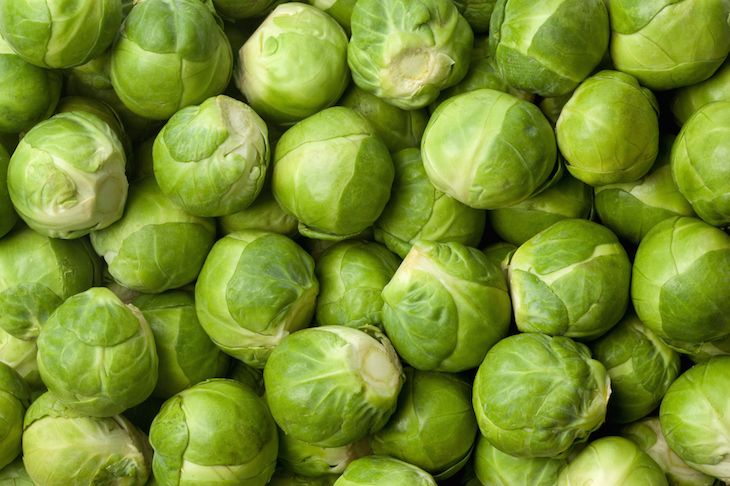Life in the borderlands
Sir: The Irish border question has grabbed political headlines this year, but spare a thought for those who live near it. The border takes a haphazard route along river banks, and even through farms. I recall visiting a farm in Fermanagh: I drove into the farm from Northern Ireland but the farmer showed me an exit which led straight into the Republic. For a number of years the Methodist Church in Pettigo (NI) had a minister whose house was on the other side of the border.
This porousness is remarkable considering the historical conflict between our two countries. To this day, many Irish call Northern Ireland ‘the North’, as if to deny the border exists. One feels sympathy for those seeking to trade across the border who are desperate for some clarity from the Brexit negotiations. Switching from pounds to euros every time I cross is a tangible reminder of its presence. If the UK leaves the customs union and triggers a hard border after Brexit, it could throw the union into political crisis. But one wonders whether the locals will do what they have always done through periods of political tumult — adapt their lives around the border, acknowledging its presence but carrying on with their business all the same.
Robert Wallace
County Antrim, Northern Ireland
British sprouts
Sir: In the light of our forthcoming departure from the European Union, may I suggest we rename Brussels sprouts? We may not be leaving the EU with control of our laws, waters or trade, but we can at least claim this noble vegetable as our own. Perhaps readers similarly put out by the Prime Minister’s deal will join me in taking back control and tucking into a plate of British sprouts on 25 December.
Andrew Milligan
Southampton
The biographer’s task
Sir: Richard Bradford (1 December) gives an insight into the work of a literary biographer. Arthur Miller and I circled one another warily for several years about the idea of a biography. He didn’t want one (he had written a brilliant autobiography), and I was convinced I couldn’t write one.
In 2003, however, the American critic Martin Gottfried, referred to by Miller as ‘that shit’, published his biography. Among other things, he erroneously claimed that Miller’s daughter, Jane, had had a stillborn child. When I pointed this out to Gottfried, he replied: ‘That’s what you get when the family won’t cooperate.’ Then, at a party Miller suddenly introduced me as his biographer and I thought, ‘Holy shit. Now I’m going to have to write it.’
I showed him the first chapter and, aside from correcting my solecisms, repetitions and generally poor writing, he debated with me what the distinction was between his being a Marxist at the University of Michigan and someone being a communist — though in truth I had read a letter he wrote to his mother in which he explained that communism was the only possible answer. I never showed him anything more, and he never asked to see any of it.
I would get up at six in the morning to make my way through the papers he had retained for me at his Roxbury, Connecticut house. I got used to the bus trip from Kennedy Airport. Once, the driver managed to shear part of the top of the bus off while going under a bridge, but drove on as if nothing had happened. And people think writing a biography is easy.
Professor Christopher Bigsby
University of East Anglia, Norwich
Celebrity culture
Sir: Norman Poser and his reviewer Ian Kelly appear to be at cross purposes about what language was used to describe celebrity culture in the 18th century (‘Theatrical knowledge’, 1 December). While the term ‘celebrity’ was seldom used until the 19th century, the designation ‘celebrated’ was in common use long before. The press extolled the fame and glamour of actresses, writers, and beauties, as in George Ballard’s Memoirs of Several Ladies…Who Have Been Celebrated for Their Writings or Skill in the Learned Languages, Arts and Sciences (1752) or, more pithily, in Thomas Johnson’s title of his print of a notorious courtesan ‘The Celebrated Miss Murray’ (c. 1750-60).
Nor was the term confined to women, and in 1771 the London press hailed ‘the celebrated Mr Banks [Joseph Banks]’ for his haul of charts, artefacts and specimens brought back with Captain Cook from the South Seas. As today, being ‘celebrated’ thrived on publicity and commerce, spiced with sensation, notoriety or scandal.
Dr John Stevenson
Down St Mary, Devon
Revolting kippers
Sir: Sam Leith’s balanced approach to his dismissal as a columnist on the London Evening Standard was commendable (Diary, 1 December). Revenge does flit through the mind when one is fired, and I enjoyed his anecdote of fish fingers being secreted in an office to cause distress. It brought to mind an incident from 25 years ago at a corporate offsite; some colleagues found their way into the room of a team member they thought objectionable. They placed two frozen kippers in the Corby trouser press and gave it the full 30 minutes. The result was unpleasant.
Albert Higginbottom
Singapore
One-bar fires
Sir: Rod Liddle is spot on about John le Carré (8 December). I’ve long held the view that life is too short to read or watch another le Carré. Your erstwhile columnist Hugo Rifkind put it brilliantly when he wrote of le Carré in these pages in 2011: ‘Single bars burning on three-bar fires; men who are not quite gentlemen turning a collar up against the cold, as grey rain falls on grey streets, and good people die suddenly and hopelessly for plot reasons you don’t quite understand.’
Peter Cardwell
London W6
Got something to add? Join the discussion and comment below.
Get 10 issues for just $10
Subscribe to The Spectator Australia today for the next 10 magazine issues, plus full online access, for just $10.
You might disagree with half of it, but you’ll enjoy reading all of it. Try your first month for free, then just $2 a week for the remainder of your first year.














Comments
Don't miss out
Join the conversation with other Spectator Australia readers. Subscribe to leave a comment.
SUBSCRIBEAlready a subscriber? Log in